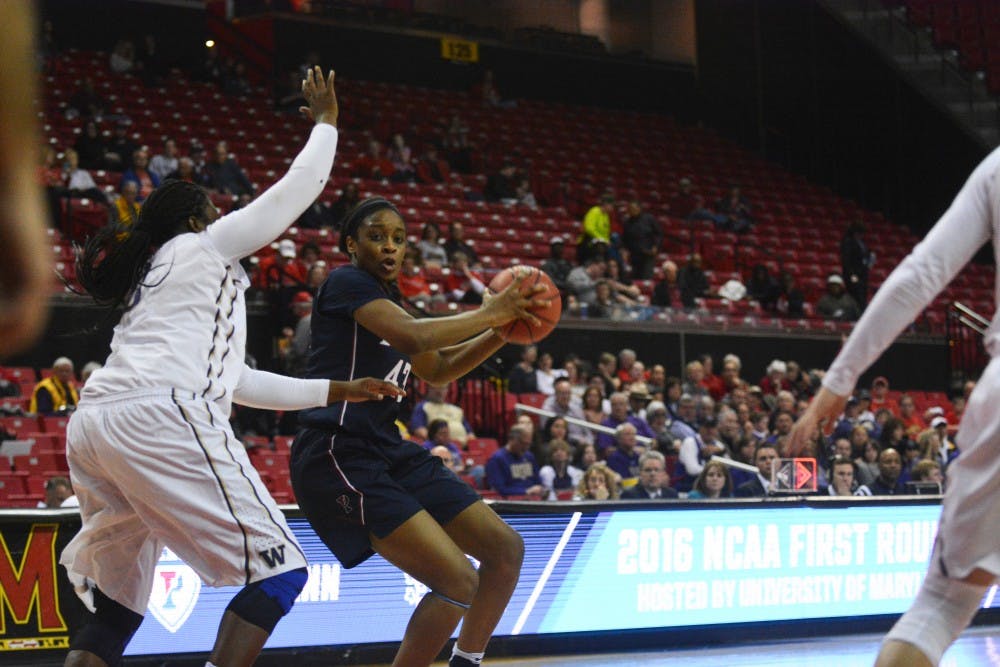As I walked into the press room at the University of Maryland, I came across a fellow reporter quickly putting on his tie and grabbing his belongings to head down to press row.
“The tip was moved up to 3:43.”
It was a strange moment.
Now, a full day removed from the game and that moment it’s odd to look back. After all, as far as I can tell, no one knew the game’s start time was changed until mere minutes before.
The earliest sign of the change I can find is a tweet from University of Washington women’s basketball at 3:25 p.m. Penn didn’t tweet the change until just five minutes before the actual tip-off.
Regardless, it’s fairly shocking to see an NCAA Tournament game’s start time changed. This is a nationally broadcast event, airing live on ESPN2, and one whose participants had been anticipating since Selection Monday.
Moving up the start time on such short notice severely impacts their preparation and pregame rituals. For many players this is already a stress-inducing matchup and one of the biggest games of their careers.
Now, of course, this isn’t any sort of excuse or explanation for Penn’s loss — that can be much more clearly attributed to X’s and O’s rather than start times — but it certainly impacted both teams.
“You’ve got all the emotions of coming in here, you have the excitement, you have a game that we anticipated to start at 4:00 and it starts 15 minutes earlier,” coach Mike McLaughlin said. “But there’s no excuses and [the team] won’t make any for themselves either.”
So why exactly was the game moved up? The simple reason seemed to be because the previous game, Maryland versus Iona, had finished early. However that implies something greater, that this game — and all the players, coaches and fans who traveled to attend it — were just an afterthought, something that needed to be concluded as quickly as possible.
That feeling was further driven home by the fact that ESPN chose to remotely broadcast the first and second round games at Maryland and at Mississippi State, meaning that off-site commentators provided the live commentary on the broadcast. Now, remote broadcasts aren’t entirely uncommon, but this is arguably the highest profile event for which that technique has been used, and this season is the first time ESPN has employed it for the women’s NCAA Tournament.
Perhaps most importantly, this isn’t something that would happen on the men’s side of the NCAA Tournament. The expedited start, the remote broadcast, it’s all unfathomable if the genders were to switch.
I can already picture the media firestorm if a game was moved up and a favorite was upset. We call it March Madness for a reason, but the focus should be on the madness within the game, not on the logistical madness outside of it.
I know that women’s basketball doesn’t have the same widespread appeal that the men’s sport does, but one would think that on one of its biggest stages these players would be shown the same respect as their male peers. Furthermore, now is the time to build that brand and that excitement surrounding the sport and upsetting fans — who don’t happen to be on Twitter half an hour before the game to see the time switch — isn’t the way to do it.
So I encourage the NCAA or whoever was in charge of moving the tip-off and ESPN to think more carefully. We know there’s a market for exciting sports action regardless of the gender involved, just look back to how the nation reacted to the women’s world cup.
Next time, show these student-athletes, their coaches and their fans the same respect you’d show on the men’s side. It’s really that simple.









